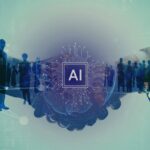 Some CEOs are warning that AI might spark a job apocalypse, suggesting that white‑collar roles across many sectors could soon be under threat. In 2023, 78% of workers noticed that AI had already found its way into at least one function within their organisations.
Some CEOs are warning that AI might spark a job apocalypse, suggesting that white‑collar roles across many sectors could soon be under threat. In 2023, 78% of workers noticed that AI had already found its way into at least one function within their organisations.
Take the example of Fiverr’s CEO, who recently warned on LinkedIn about an AI-driven transformation that could impact everything from programming to finance. Similar sentiments have been voiced by leaders at Anthropic and Klarna. Even Johnny Taylor, president of the Society for Human Resource Management, has remarked on how unusually frank and gloomy these predictions are – a tone that can easily unsettle teams.
A recent McKinsey survey from March highlights a rapid rise in AI adoption, upping the number from 55% to 78% of workers using AI in their daily tasks. Experts like Cary Cherniss at Rutgers University remind us that over-emphasising threats can drain our emotional energy, potentially spurring job turnover and lowering productivity.
This technological shift comes at a time when employee confidence is already waning. Glassdoor reports a decline in optimism about business prospects, and academics such as Heidi Brooks at Yale suggest that alarmist discussions about AI only add to existing concerns.
Still, being upfront about the potential for disruption is crucial. Chris Yeh of Blitzscaling Ventures advocates for a balanced approach, combining clear expectations with a supportive environment. CEOs like Sarah Franklin of Lattice emphasise the need to introduce AI gradually, so that teams feel informed rather than alarmed.
Furthermore, leaders like Gary Rich of Rich Leadership caution against speculative forecasts. History shows us that grand predictions – such as fears that television would completely eclipse radio – rarely pan out. Recent findings in a PricewaterhouseCoopers survey, where some organisations report workforce reductions while others see growth, remind us that the impact of AI on employment is still unfolding.
If you’ve ever felt overwhelmed by uncertain forecasts, consider this: staying informed about AI’s evolving role in your field is your best bet. While widespread change may be on the horizon, expect the transition to be more gradual than sensational.








